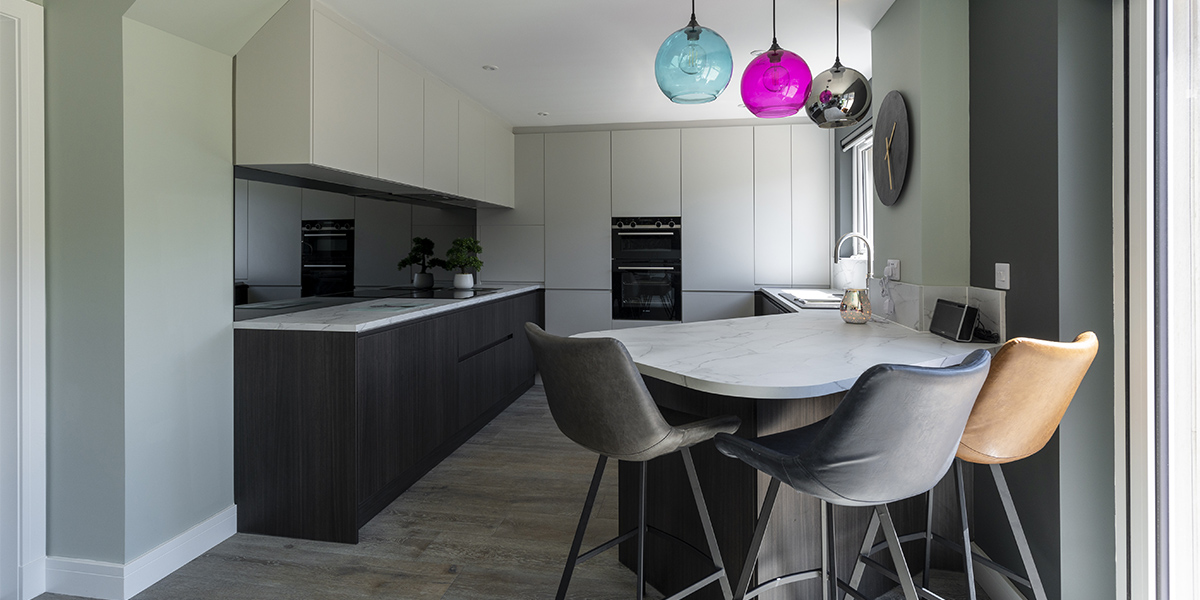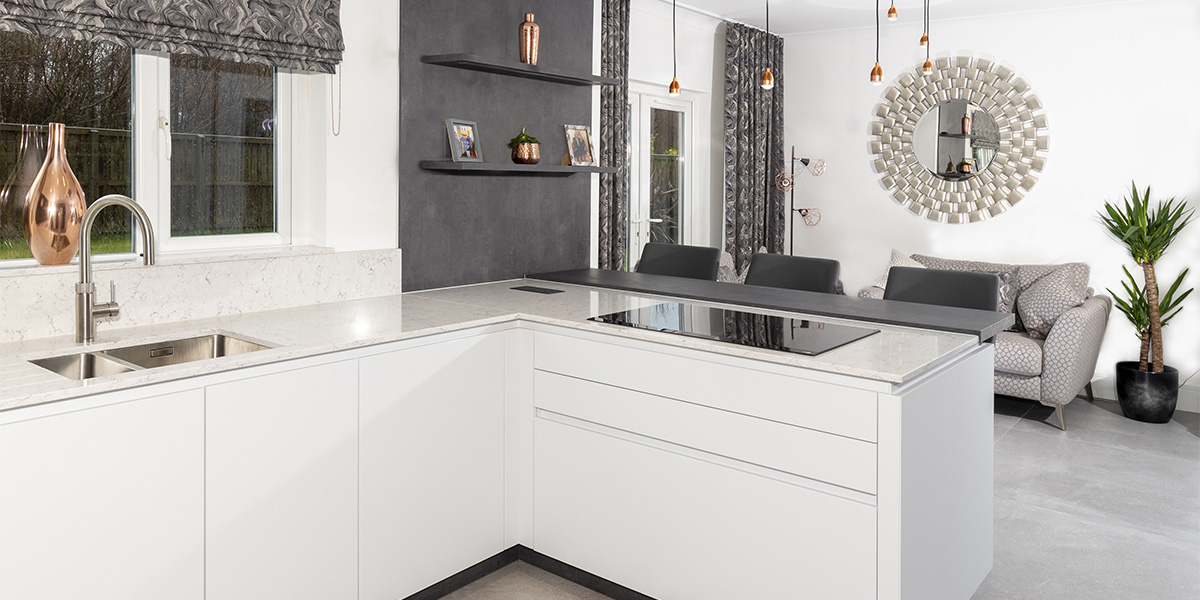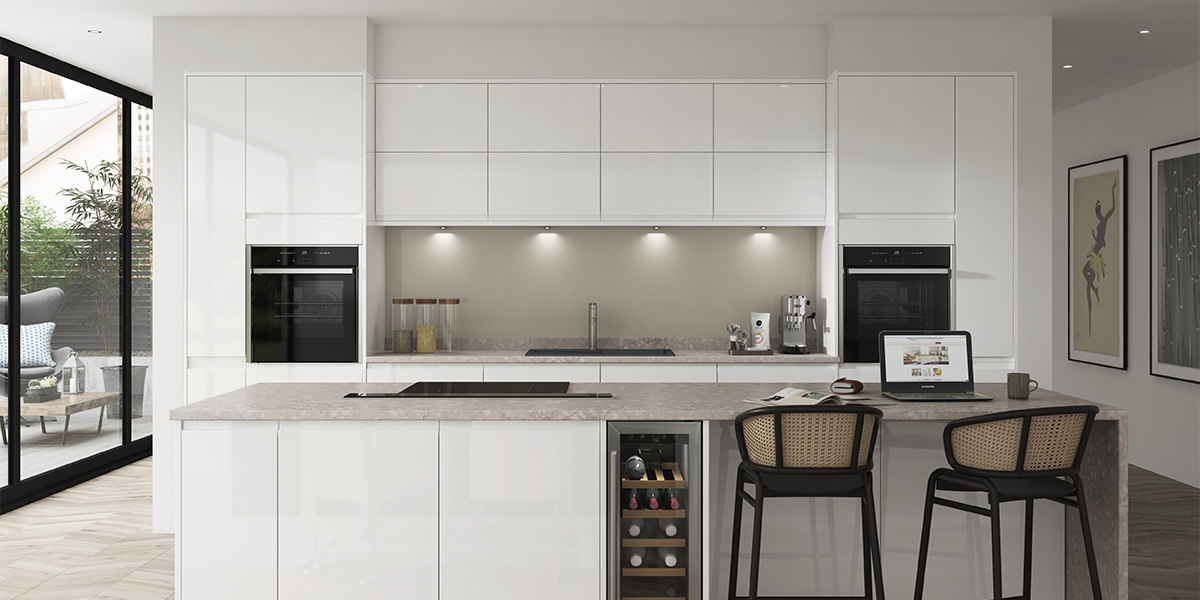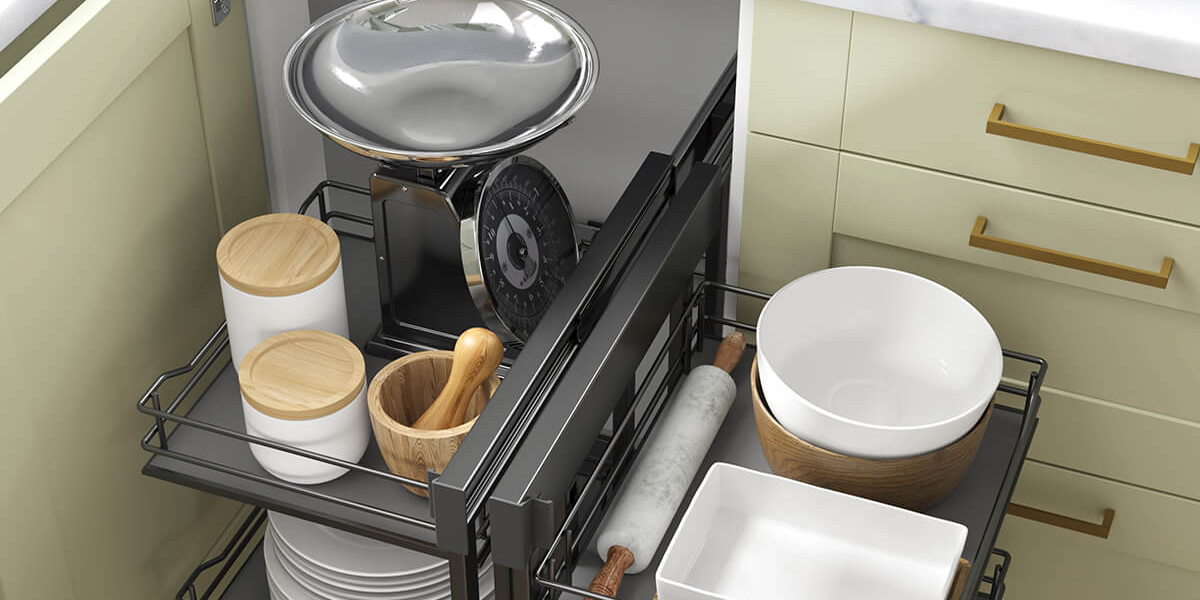Kitchen layout tips

Key Takeaways
- L‑Shaped Layout is highly flexible and suitable for single cooks but may feel crowded for two; adding an island or extra prep sink can improve usability.
- U‑Shaped Layout offers excellent work flow, although too many wall units can make it feel overwhelming, balance with shelving.
- Galley Kitchens are efficient for narrow spaces but benefit from lighter colors and smart storage solutions to avoid a cramped feel.
- Island/Open‑Plan Kitchens are popular for multi‑functional living, fostering social cooking, working, and dining experiences.
- Storage and Budget planning are essential, integrated units, pan drawers, and clever inserts maximize space, while design choices should align with budget levels.
Moving into a home with a kitchen that balances function and flow can transform the way you live. The kitchen has evolved into a versatile hub, serving as a workspace, relaxation zone, and social centre all at once. Whatever layout you’re considering, from L-shaped to galley, let’s walk through the strengths and challenges of each option so you can make the best choice for your home’s heartbeat.
L‑shaped kitchen
The L-shaped layout is the most versatile design available. Two runs of cabinetry form an “L” along adjacent walls, and you’ll often find an island in the middle to enhance workspace and functionality. Ideally, one wall holds your hob, while the opposite holds your sink and fridge, creating a balanced kitchen triangle. This layout works wonders for one cook, but if multiple people use the space at once, movement can get cramped. Adding a prep sink or adjusting positioning can ease traffic flow.

U‑shaped kitchen
In rooms that are more square, the U-shaped format can optimize your layout. Place your hob centrally with the sink and fridge at either end to complete the kitchen triangle effectively. However, be mindful of wall units, they can dominate the space, making it feel boxed-in. Pair tall, sleek cabinetry with open shelving for visual balance. Plus, if space allows, carving out a distinct dining or living zone outside the U-formation helps open up the area and reinforces the kitchen’s role as a multifunctional heart.
Galley kitchens
Galley kitchens, long and narrow, are common in older homes or compact layouts. With doors at either end, the space can feel tight. To make the most of it, separate the cooking area from the “wet zone” with countertop space. Skip bulky overheads; tall pan draws or linear pans can optimize storage without overcrowding. Light or reflective colors help the space feel larger, and clever cabinetry inserts let you retrieve pots and pans easily without chaos.
Island and open‑plan kitchens
If your home layout allows, an island or open-plan design creates an inviting, communal area. Islands often include cooking stations or prep sinks, pulling everything into one central hub. It’s essential to leave at least a metre of space around the island for ease of access. The flexibility to cook, dine, work, or entertain in adjacent spaces makes this layout a top choice for modern family dynamics, where multi-purpose living is the norm.

Plan Your budget carefully
Before you fall in love with stunning kitchen features, decide your budget early. A kitchen designer can help you replicate looks you fancy at a range of price points, pushing value without excess spend. From door finishes to countertop materials, your budget informs every choice, keeping you from overspending while still achieving a dream-worthy outcome.
Don't overlook storage
Even with a beautiful layout, lack of storage can undermine functionality. Integrated carousel units save space and heighten accessibility. Pan drawers offer ample depth for heavy dishes, and sleek additions like concealed drawers, pull-out wire shelves, and storage baskets help you utilize every inch, an essential strategy in smaller kitchens or homes where every square foot counts.
